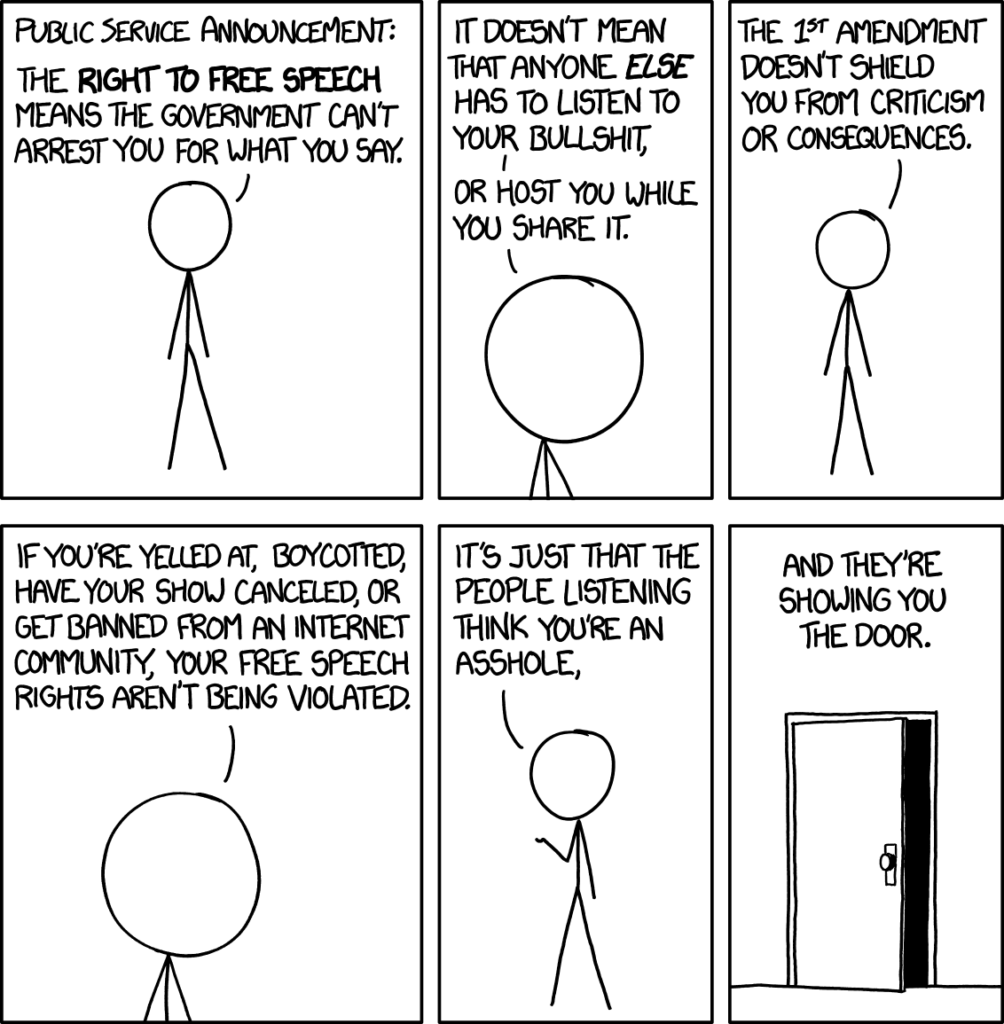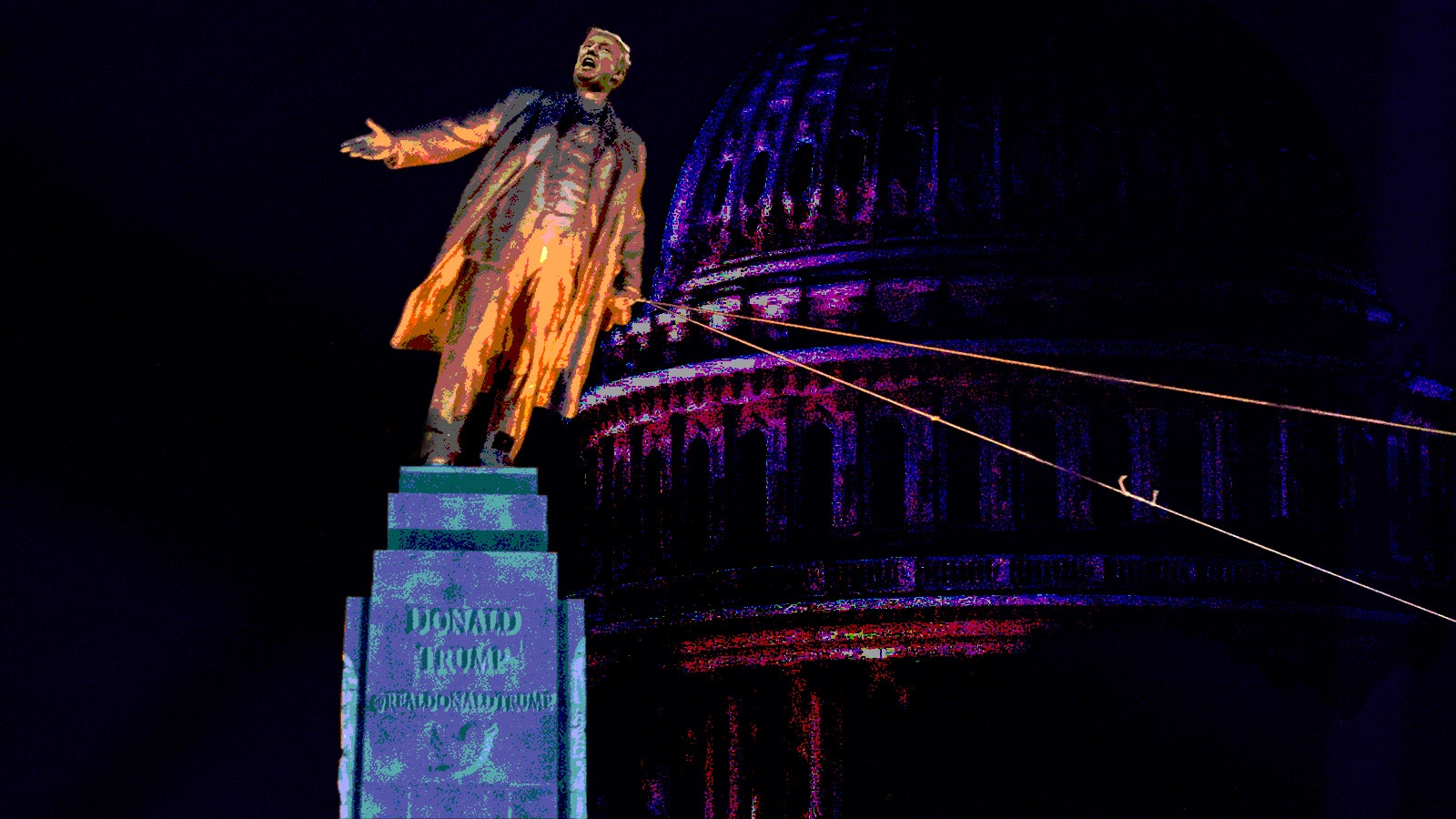Last week, Donald Trump incited a riot at the US Capitol building with the intent of overturning the result of the election he undoubtedly lost. In response, the major social media networks and platform holders banned Mr Trump and perhaps millions of his supporters on the grounds that it had become clear that Trump et al. would defend the indefensible and possibly incite more violence.
The United States is, by some stretch of the definition, a liberal democracy built on the values of freedom of speech and freedom of association. The law of the land is that companies and legal persons have almost all the same rights as natural persons.[a] As such, it must logically follow that private businesses that own the social media platforms must have the freedom of association afforded to any other business. That’s why platforms have verbiage in the Terms of Service like “We can refuse to provide or stop providing all or part of the Service to you (including terminating or disabling your account) immediately to protect our community or services […]”.
The idea that business owners should be able to deny service for any legal reason was – apparently until a few days ago – the mainstream positions of the conservative right. Now, it seems, the right believes that it is entitled to Twitter accounts in the same way they believe themselves entitled to guns.
The point that one should take from this is that platform holders have the right in a liberal democracy to associate with whomever they like. If a platform don’t want to associate with recidivist Nazis who suggest the rape of female journos, or ISIS terrorists, or unhinged has-been world leaders who deny reality, that’s their business.
Similarly if other platforms, like Alibaba’s AliCloud and the “free speech” registrar Epik, choose to associate themselves with proto-terror group Antipodean Resistance and incitement rag The Daily Stormer respectively, that’s their business.
It is evident from the two examples given above, that those who want to express fascist bile and/or incite terrorism can still publish their shit if they want to. What changes is now people have to actually seek out fascist propaganda and incitement content rather than having it roll in to their news feed.
JUST IN: Metro police have released the booking photo for Eric Munchel, known as #ZipTieGuy, arrested today in Nashville for his alleged involvement in the riots at the U.S. Capitol. pic.twitter.com/rRKrvRHZsX
— Josh Breslow (@JoshBreslowWKRN) January 10, 2021
For all kinds of vile ideology, deplatforming works.
One of the tactics used by social media giants in the fight against ISIS was, and remains, to systematically remove all of their content on their platforms. Yet, the freeze-peach warriors and Orwell-citers never accused Twitter of censoring Al-Baghdadi in his calls for beheadings and genocide. For anyone to do so would be madness.
It is without doubt that, had they got the chance, many of those who stormed Congress would have taken the opportunity to assault or murder legislators for the entertainment of their leader, Mr Trump. Both the putschists and IS seem to share the wish for an anti-democratic state that directs violence towards dissenters, albeit with completely different views of what such a state should look like.
If it wasn’t censorship for platforms to work together to stop the ISIS propaganda machine, it is simply cannot be censorship for platforms to work together to stop the antidemocratic efforts of Mr Trump and those who support his attempts to subvert the electoral process.
The question of whether it was right for the major social media platforms to disassociate from fascists is a completely different question from whether we should vest control over the majority of people’s speech to private corporations. That latter question will be a major theme of the next post.
What is indisputable is that removing violent extremists who wish to overthrow democratic governments and kill legislators from platforms through which they can damage a larger audience was a good thing.
In sum: Deplatforming is not censorship in a society in which freedom of association exists. To force social media platforms to host content they don’t associate with would be to compel them to speak on your behalf. Other instances of deplatforming of violent ideologies, specifically that of ISIS, were not “censorship”, and as a result it cannot follow that doing the same to another ideology, in this case fascism, is “censorship”.
Relevant XKCD comic you’ve probably seen elsewhere

I also think many of you would like this excerpt from Evan Smith’s book No Platform which discusses the use of the tactic of deplatforming against British fascists.
Notes
[a] See Citizens United and Hobby Lobby
The headline image for this post includes a portrait of Trump made by Michael Candelori.

